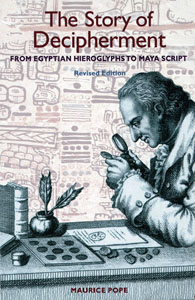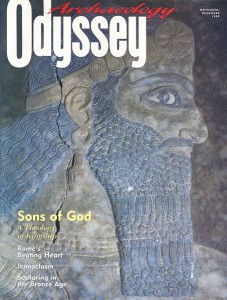
Nothing is so romantic as the decipherment of an unknown script. We moderns are justly proud to have discovered the infinitesimally small world of quarks and the egregiously large world of the general theory of relativity. But the discovery of the human past over the last 200 years has taught us more about who we are and where we come from. Decipherment has made this possible, and there is no better book on the subject than Maurice Pope’s revised edition of a study first published in 1975.
This is the story of men of extraordinary intellectual qualities who allowed their sense of method to triumph over what they “knew” to be true. As a scientific undertaking, decipherment depends on little-known general laws that govern language and writing, as well as on hard-won facts wrested from intractable material. Nonetheless, a surprising moral of this history (Pope calls it an “embarrassing” moral) is how often false suppositions have led to important new facts. We might call this the Columbus Principle: Would-be decipherers make certain assumptions with the hope of discovering facts that support them; often, however, they come across other, extremely unwieldy facts that require a revision of their initial premises—and sometimes lead to a whole new body of truths. This courage to err, along with the willingness to revise, is a distinct virtue possessed by almost all of the clear-eyed heroes of our story.
Already a library member? Log in here.
Institution user? Log in with your IP address.

